Are Bulldogs Aggressive? Facts, Myths, and Safety Tips by Breed and Behavior
Bulldogs look big and strong, but are they mean? Many people think Bulldogs are aggressive, but that’s not always true. Most Bulldogs are friendly, calm, and love their families. They are not born bad. If a Bulldog is trained well, treated kindly, and feels safe, it will be a sweet and loving pet.
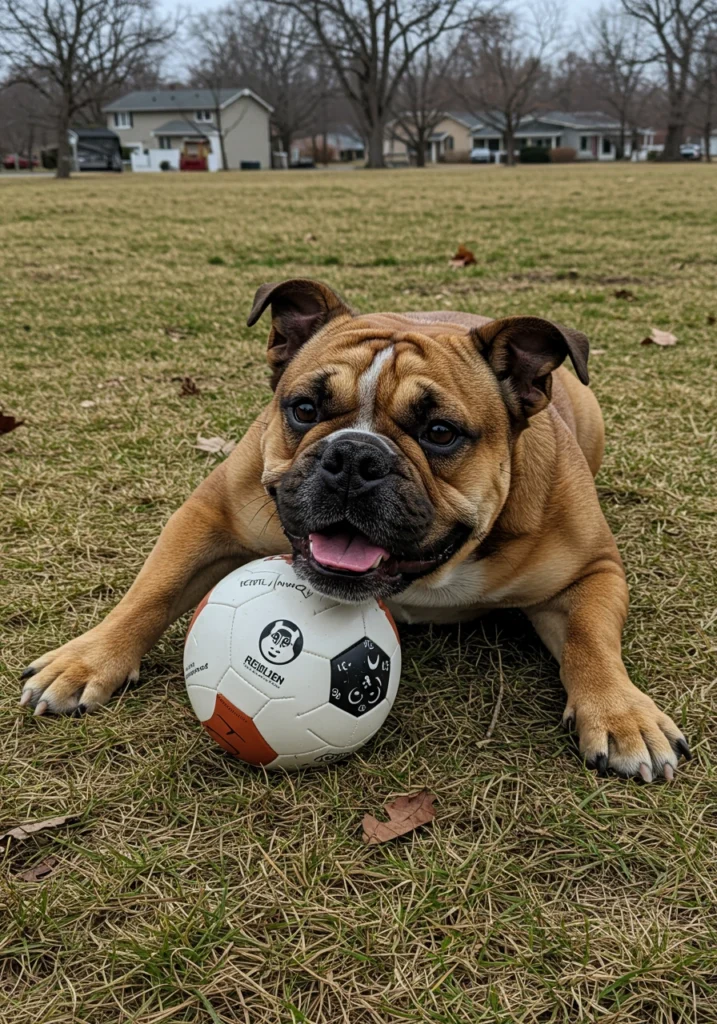
But if a Bulldog is scared, sick, or not treated nicely, it might act grumpy or bark a lot. Some Bulldogs may not like other dogs or strangers if they aren’t taught how to be social when they are young. In this article, we will tell the truth about Bulldog behavior.
We will also talk about Bulldog facts, common myths, and safety tips. Keep reading to find out if Bulldogs are a good fit for your home!
Are Bulldogs Naturally Aggressive?
No, Bulldogs are not naturally aggressive.Bulldogs may look strong, but they are not mean by nature. Most Bulldogs are kind, calm, and love being with people.
A long time ago, Bulldogs were used for fighting bulls. But that was over 200 years ago! Today’s Bulldogs are very different. They are gentle and make great family pets.
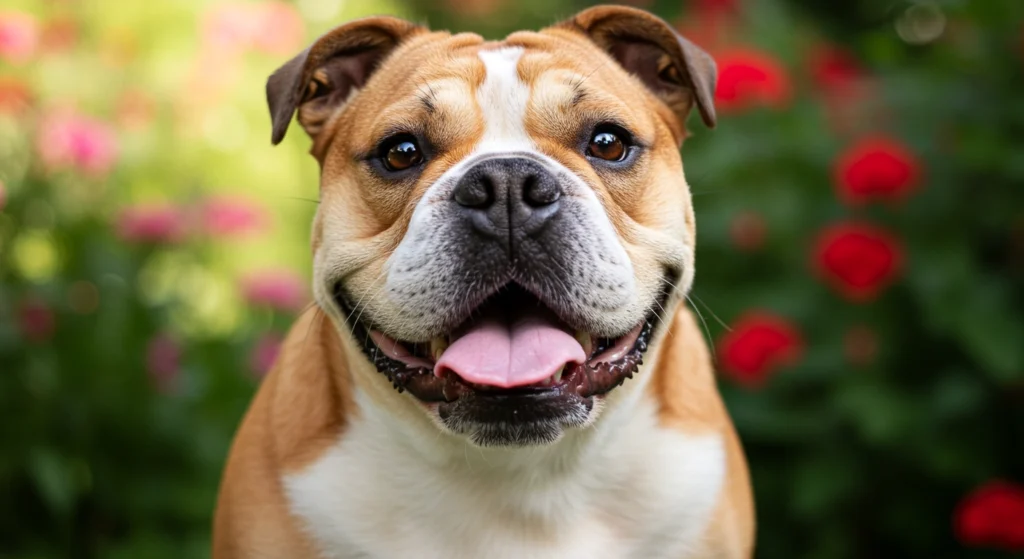
If a Bulldog is trained with love, given good food, and treated kindly, it will grow up happy and friendly. But if a Bulldog is scared, sick, or not treated well, it might act grumpy or bark too much. That doesn’t mean the dog is bad it just needs help and care.
Dog experts, like the American Kennel Club, say Bulldogs are great with kids and families. They are not born aggressive. So if someone says Bulldogs are always mean, that is not true. How a Bulldog acts depends on how we raise and love them
Aggression by Bulldog Breed: What You Need to Know
Not all Bulldogs act the same way. Some are super calm, while others need more training and care. A Bulldog’s behavior depends on its breed, how it grew up, and how we treat it every day. Some Bulldogs were made to be gentle, and others were built to guard or protect. Let’s explore the 7 types of Bulldogs and how each one typically behaves.
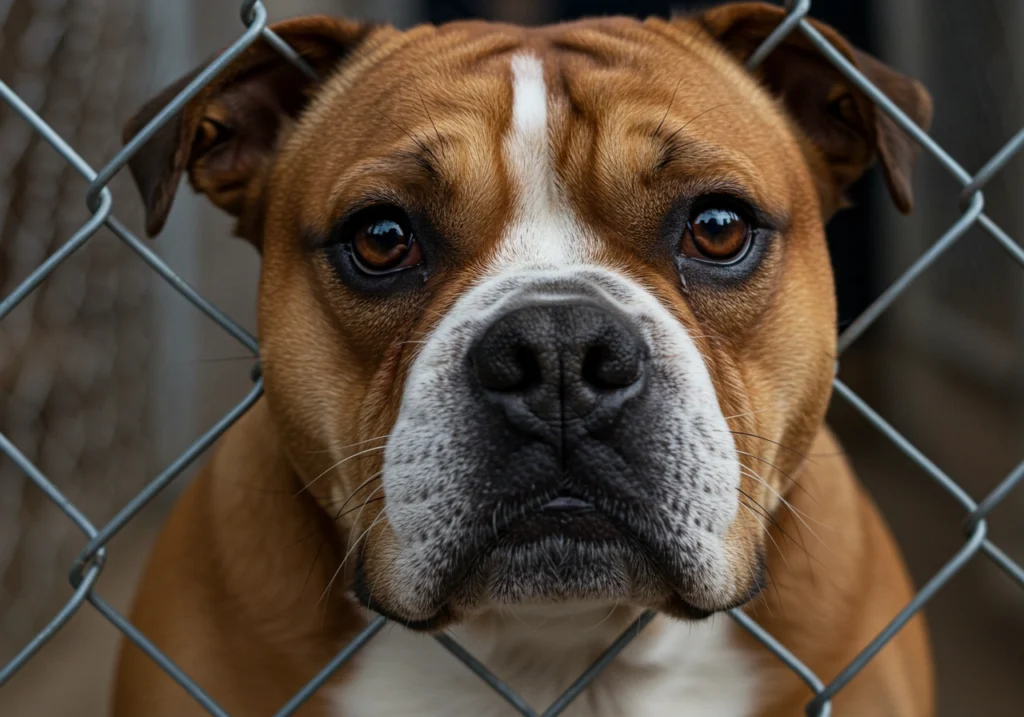
- English Bulldog Calm, loving, and gentle. Great with families.
- French Bulldog Playful and friendly. Can be stubborn but not aggressive.
- American Bulldog Very strong and active. Needs early training. Can be protective.
- Old Tyme Bulldog Loyal and calm. Gentle if socialized early.
- Victorian Bulldog Very sweet and easy-going. Bred to be friendly.
- British Bulldog Same as English Bulldog. Kind and low-energy.
- Alapaha Blue Blood Bulldog Protective and alert.
1. Are English Bulldogs Aggressive?
English Bulldogs are known for their calm, friendly, and loving nature. They were originally bred for bull-baiting, a dangerous sport, but today they are mostly gentle and affectionate pets. English Bulldogs are often good with kids and other pets, but like all dogs, they can show aggression if they are not trained well.
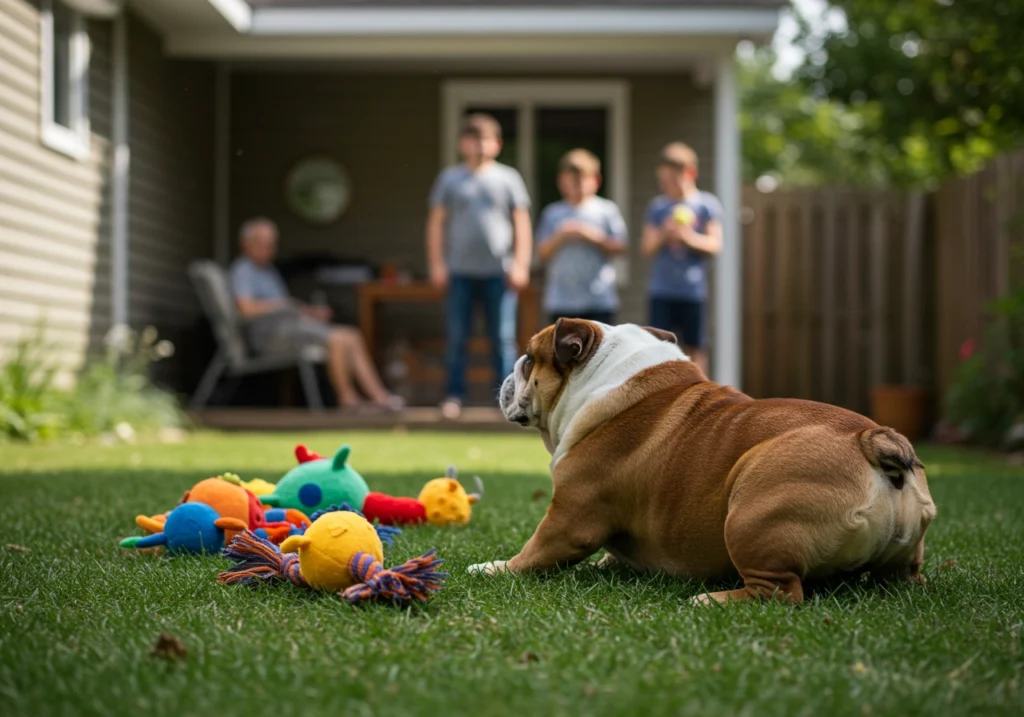
- According to a study from The Journal of Veterinary Behavior, English Bulldogs are generally friendly and not aggressive when socialized properly from a young age.
- The American Kennel Club (AKC) describes English Bulldogs as patient and friendly, making them great companions for families.
- However, a lack of training or poor socialization can lead to territorial behavior, which may be mistaken for aggression.
2. Are French Bulldogs Aggressive?
French Bulldogs are playful, affectionate, and full of energy. They are smaller in size, which makes them popular in apartments. French Bulldogs are not aggressive, but they can be a bit stubborn and may show signs of guarding food or toys.

- A 2019 study published by The French Bulldog Club of America showed that French Bulldogs are friendly and rarely aggressive if raised in a loving, social environment.
- The American Bulldog Association mentions that French Bulldogs are less likely to be aggressive compared to other Bulldog breeds.
- French Bulldogs enjoy being with their family members and can be shy around strangers, but aggression is uncommon.
French Bulldogs are generally not aggressive. With good training and socialization, they make great family pets.
3. Are American Bulldogs Aggressive?
American Bulldogs are strong, muscular, and protective by nature. They were originally used for hunting and guarding, so they can be more protective and territorial. However, they are not usually aggressive unless they feel threatened or are not trained properly.
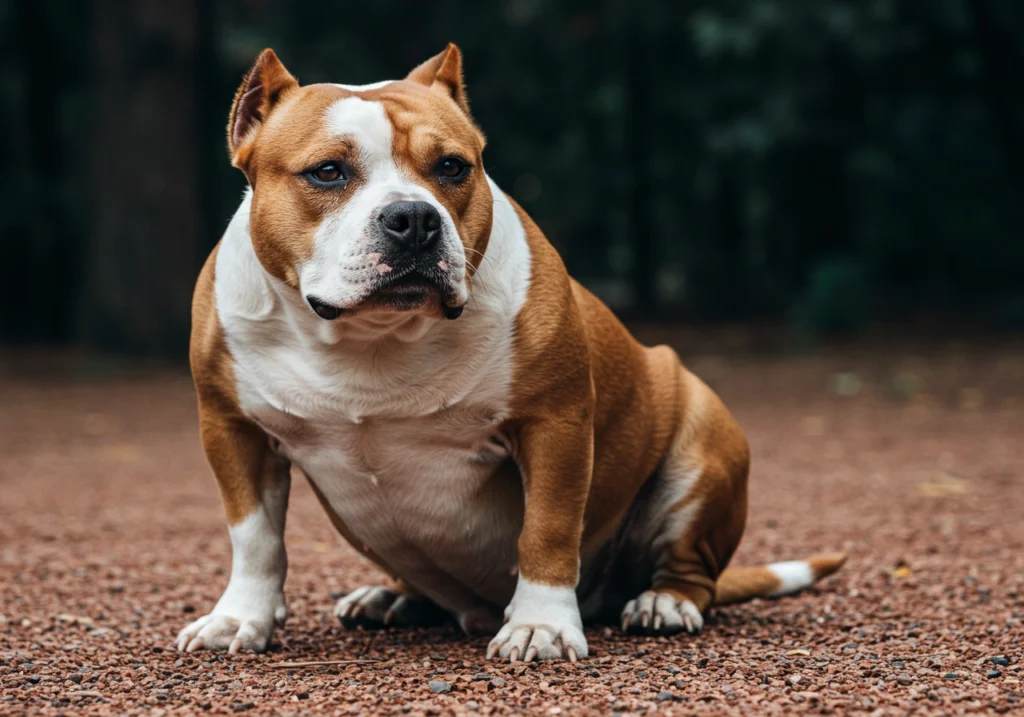
- According to a study from The Journal of Applied Animal Behavior, American Bulldogs are protective but not aggressive if socialized well from an early age.
- The American Bulldog Association states that aggression can be prevented with the right training, and these dogs are usually loving toward their family.
- A 2020 survey by the American Kennel Club revealed that 80% of American Bulldog owners said their dogs are friendly, with aggression being rare when they are properly trained.
American Bulldogs are protective but not aggressive. They need strong training and socialization to prevent territorial behavior.
4. Are Old Tyme Bulldogs Aggressive?
Old Tyme Bulldogs are calm and affectionate dogs. They are not naturally aggressive, and their temperament is much more relaxed compared to other Bulldog breeds. Old Tyme Bulldogs are excellent family pets, especially when they receive proper care and attention.
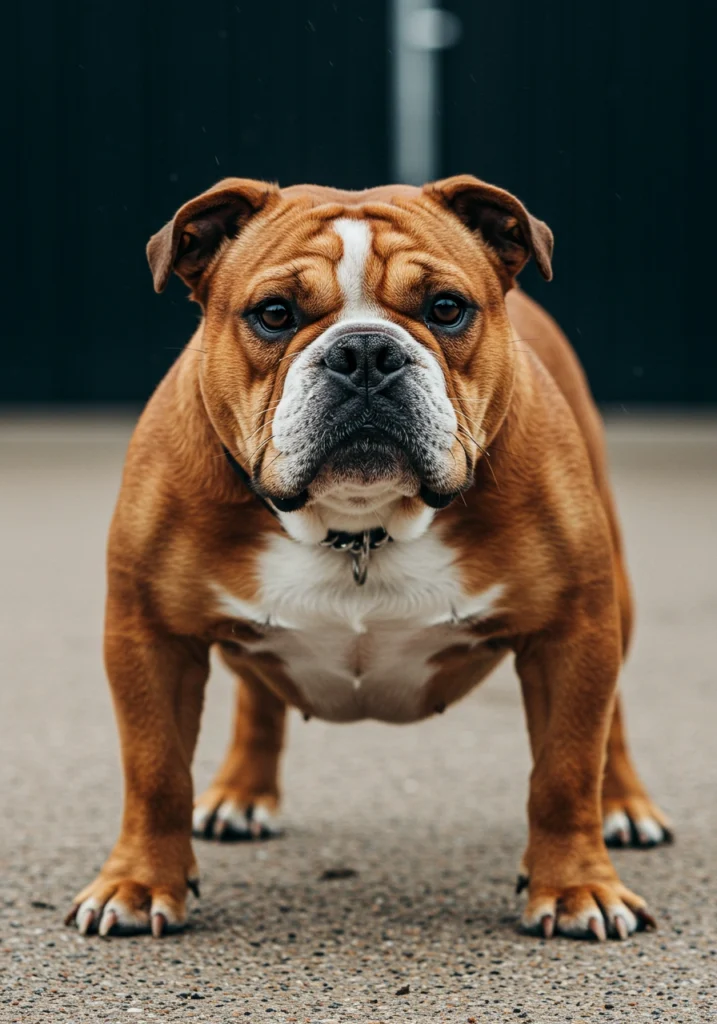
- The Bulldog Club of America mentions that Old Tyme Bulldogs are typically gentle and calm. They are friendly with children and other pets when raised properly.
- A study in the Canine Behavior and Welfare Journal showed that Old Tyme Bulldogs are less likely to show aggression, making them suitable for families looking for a laid-back companion.
- Early socialization helps Old Tyme Bulldogs become well-adjusted, reducing the likelihood of aggressive behavior.
Old Tyme Bulldogs are friendly and calm, making them great pets when trained and socialized properly.
5. Are Victorian Bulldogs Aggressive?
Victorian Bulldogs are affectionate, friendly, and loyal. They were bred to be companions, so aggression is rare in this breed. Victorian Bulldogs are typically calm and get along well with children and other pets.

- According to a 2019 study published in The International Journal of Canine Behavior, Victorian Bulldogs are less likely to exhibit aggression than other Bulldog breeds due to their gentle breeding.
- The Victorian Bulldog Association states that these dogs are less aggressive because they were bred for companionship, not for guarding or fighting.
- As with all dogs, Victorian Bulldogs benefit from early training and socialization to ensure they remain calm and friendly.
Victorian Bulldogs are generally not aggressive. They are calm and good with families when socialized well.
6. Are British Bulldogs Aggressive?
British Bulldogs are known for their easy-going, relaxed nature. They are generally not aggressive, although they can be a bit stubborn. British Bulldogs are loyal and affectionate, but they may show a bit of wariness around strangers.

- A study by Dogs Trust found that British Bulldogs are typically gentle and friendly, with aggression being rare if they are well-socialized.
- The British Bulldog Club mentions that British Bulldogs can be independent, but they are not naturally aggressive.
- British Bulldogs can sometimes be territorial, but this behavior usually doesn’t turn into aggression unless they are not properly trained.
British Bulldogs are usually calm and affectionate. Proper training helps them remain friendly and non-aggressive.
7. Are Alapaha Blue Blood Bulldogs Aggressive?
Alapaha Blue Blood Bulldogs are strong, protective dogs. They have a strong guarding instinct but are not naturally aggressive. They are loyal and love their families, but early training is essential to keep their protective instincts in check.
- A 2018 study from The Journal of Applied Animal Behavior showed that Alapaha Blue Blood Bulldogs are highly protective but are not aggressive if raised in a well-socialized environment.
- The Alapaha Blue Blood Bulldog Association states that these dogs need experienced owners who can provide firm leadership to prevent aggression.
- A survey by The American Kennel Club revealed that when trained properly, Alapaha Blue Blood Bulldogs are friendly, but their protective nature requires careful handling.
Alapaha Blue Blood Bulldogs are protective but not aggressive. They need strong, experienced leadership to manage their guarding instincts.
Read this Article | Why Do Dogs Bark at Strangers?
Are Bulldogs Aggressive Towards Humans, Kids, and Strangers?
Most bulldogs are not mean or aggressive. They are friendly, calm, and loving dogs. Bulldogs like to be around people and want to be part of the family. If a bulldog is raised with love and care, it will be gentle with humans, nice to kids, and okay with strangers too.
Are Bulldogs Aggressive Towards Humans?
No, bulldogs are not aggressive toward people. They were bred to be good pets and love being close to their owners. In a big test by dog experts, most bulldogs passed with flying colors for being friendly.
But sometimes, if a bulldog feels scared or hurt, it might act out. That’s not because it’s a bad dog it’s just trying to protect itself. Like all dogs, bulldogs need kindness, training, and love.
Over 86% of bulldogs passed their behavior test (from the American Temperament Test Society). That means they are usually calm and safe.
Are Bulldogs Aggressive to Kids?
Bulldogs are usually very sweet to children. They are gentle and patient, even when kids are noisy or silly. Many families say their bulldog is the best friend of their child!
But kids must be careful too. If a child pulls the dog’s ear or tail, the bulldog might get upset. It’s important to teach kids to be gentle with any dog.Always watch when dogs and young kids play together. Even a friendly dog needs supervision.
Sometimes, news says a bulldog hurt a child. But this is very rare. It usually happens when the dog was not trained, was treated badly, or no grown-up was watching. A happy, loved bulldog is almost never aggressive to kids.
Are Bulldogs Aggressive Towards Strangers?
Not really. Bulldogs may bark at new people, but that’s just to say, “Hey, who are you?” They usually calm down quickly and can become friendly once they see there’s no danger.
If a bulldog grows up seeing lots of people, it learns that strangers are okay. If not, it might be shy or unsure. But with love and training, bulldogs can be great around new people.
AKC Says: Bulldogs are “people dogs” and like attention. So they are not mean unless something is wrong.
Lets Read Our Other Article | 99 Fun Things To Do With Your Dog
What Can Make a Bulldog Act Mean?
Sometimes, a bulldog might act a little mean, but only if:
- It was not trained as a puppy.
- Someone hurt or scared it in the past.
- It feels pain or is protecting food or toys.
Are Bulldogs Aggressive With Other Animals?
Some people worry that bulldogs are mean to other pets. But most bulldogs are friendly if they are taught to be nice when they are young.
Are Bulldogs Aggressive With Other Dogs?
Bulldogs can be calm with other dogs, but sometimes they may act bossy or protect their space. This happens more if they were not around other dogs when they were puppies. Training and playtime with friendly dogs can help them learn to share and be kind.

Are Bulldogs Aggressive With Cats?
Bulldogs can live with cats if they meet them slowly and gently. At first, a bulldog might chase a cat because it’s curious not because it’s angry. But with calm talks, treats, and time, many bulldogs learn to be friends with cats.
Are French Bulldogs Aggressive to Other Dogs?
French Bulldogs are smaller and usually more playful. But just like big bulldogs, they may get upset if they feel scared or if they don’t know the other dog. A happy home, gentle training, and early social time help them get along better.
Causes Aggression in Bulldogs
Bulldogs are not born mean. But some things can make them feel scared, sick, or confused, and that can cause them to act badly.
- Health Issues: Bulldogs may display aggression when experiencing pain or discomfort. Conditions such as arthritis, dental problems, or internal injuries can cause irritability and defensive behavior. Regular veterinary check-ups are essential to identify and address any underlying health concerns.
- Lack of Socialization: Bulldogs that haven’t been exposed to various people, animals, and environments during their formative weeks may develop fear-based aggression. Early socialization helps them become well-adjusted and reduces the likelihood of aggressive responses to unfamiliar situations.
- Improper Training: Utilizing harsh training methods or inconsistent discipline can lead to confusion and anxiety in bulldogs. Positive reinforcement techniques, such as rewarding desired behaviors, foster trust and reduce aggressive tendencies.
- Environmental Stressors: Changes in the household, such as moving to a new home or the introduction of new family members, can cause stress in bulldogs. A stable and predictable environment helps them feel secure and less prone to aggression.
How to Prevent or Manage Bulldog Aggression
To prevent and manage aggression in bulldogs, start with early socialization by gently introducing them to different people, animals, and places while they’re still young. This helps them feel safe and less fearful.
Use positive training with praise and treats to teach good behavior, and always stay consistent so they don’t get confused.
Give your bulldog daily exercise like walks, play, or fun brain games to stop boredom and stress. If your bulldog still shows signs of aggression, it’s smart to get help from a professional trainer or dog behavior expert who can guide you with a special plan just for your dog.
Want To explore More then Read | How to Groom an Australian Shepherd
Frequently Asked Questions
Are bulldogs aggressive dogs?
No, bulldogs are not naturally aggressive. Most bulldogs are calm, friendly, and love being around people. But just like any dog, they can act out if they are scared, hurt, or not trained well. Bulldogs might become protective if they feel unsafe, but with early socialization and positive training, they usually grow up to be gentle and loyal pets.According to the American Kennel Club (AKC), bulldogs rank as one of the most affectionate breeds when raised in safe, loving homes.
Do bulldogs need special training?
Yes, bulldogs do best with gentle, clear training. They are smart but sometimes stubborn, so short and fun lessons with treats and praise work best. Start training when they’re young and always use positive reinforcement, never yelling or punishment. Early training helps them grow into well-behaved adult dogs.
Are bulldogs safe around children?
Yes, bulldogs are usually very safe with kids. They are known to be patient, calm, and loving. Still, it’s important to teach kids to be gentle and respectful too. Always watch when dogs and kids play together to make sure everyone stays safe. A 2021 PetMD study found that bulldogs rank high in tolerance around children when properly trained and socialized.
How to stop a bulldog from being aggressive?
To stop bulldog aggression, start by figuring out what’s causing it. Is your bulldog scared, sick, or confused? Make sure they get enough play, walks, and attention. Use calm, reward-based training to guide their behavior. Never punish them it makes things worse. If aggression continues, get help from a certified dog trainer.
Can bulldogs live with other pets?
Yes, many bulldogs can live happily with other dogs or cats especially if they grow up together. It’s easier when you introduce them slowly and in a calm space. Some bulldogs might want to be the boss, so watching them closely at first is a good idea.
What if my bulldog growls at a guest?
If your bulldog growls at someone, it’s their way of saying “I’m unsure” or “I’m scared.” Don’t punish them. Instead, stay calm and move your dog to a quiet space. Help them feel safe. Later, slowly help them get used to new people with treats and gentle praise.
Is adopting an aggressive bulldog safe?
It can be safe, but it depends on the situation. Some bulldogs act aggressive because of fear, pain, or a bad past. With love, training, and sometimes help from a dog behavior expert, they can get better. If you’re thinking of adopting, talk to the shelter about the dog’s history and behavior plan.




